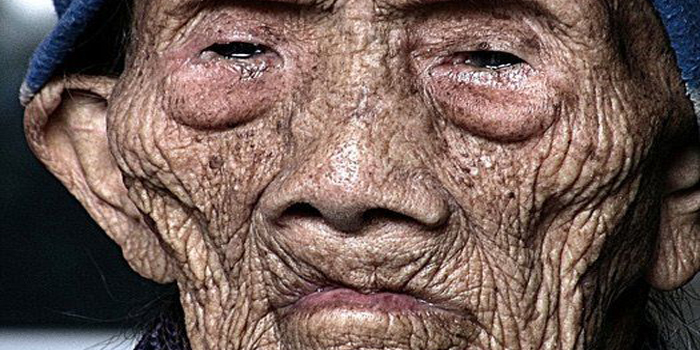A drug procurement scandal has rocked the Central Medical Stores Trust (CMST), where it is alleged a technical committee member gave inside information to prospective bidders before a tender was published.
In an interview on Monday, CMST chief executive officer Feston Kaupa confirmed the leak of details of the K25 billion (about $100 million) drug tender before the trust presented the same to the Office of the Director of Public Procurement (ODPP), the Ministry of Health and the Health Sector Wide Approach (SWAp) donors for approval.
Leaked information
He alleged acting registrar of the Pharmacy, Medicines and Poisons Board (PMPB), Aaron Sosola, who sits in the CMST technical committee, is suspected to have leaked names and quantities of all drugs in the tender to an Indian company and a local firm (names withheld) contrary to procurement regulations.
Claimed Kaupa: “When we got that information, it was very shocking to Central Medical Stores because we consider the Poisons Board to be a very critical and strategic stakeholder. We can’t buy drugs without the Poisons Board.
“Mr. Sosola has been representing the Poisons Board on our board, so we have written to the Poisons Board to express our dismay on the conduct of Mr. Sosola and we have requested that they should give us a replacement.”
He claimed CMST is in possession of communication between Sosola and the two drug companies on the forthcoming tender. Kaupa said CMST, therefore, resolved during an emergency board meeting last Friday to remove Sosola from its technical committee.
He said the revelations come three weeks after the CMST board approved the tender to proceed to engage the Health SWAp donors, the Ministry of Health and Ministry of Finance to pool resources to buy the listed drugs.
Said Kaupa: “The information that has been leaked is highly classified and confidential. This is very unfortunate, especially taking into account the efforts that have been made by donors and government to transform the Central Medical Stores to ensure that there is accountability, efficiency and transparency in drug procurement.
“We were about to meet our stakeholders including Health SWAp donors. Looking at the value of the tender in the region of K25 billion, it is something that we cannot afford on our own.
“When we are discussing matters at a stage like this one, the documents are produced as hard copies and presented to members of the committee right there in the meeting.
“They are not allowed to take the documents out of the meeting. We are very surprised as to how the Poisons Board accessed those documents because that is not allowed. That [restriction] is done to avoid such kind of compromises where some board members start circulating classified information.”
In one of the internal communications The Nation has seen, Sosola is said to have sent the list of the drugs in the tender to his two contacts on August 3, 2012.
“In accordance with our communication last Saturday, I hereby attach…the description and quantities of pharmaceuticals as per the tender document. You may quote the ones that you are able [to] supply,” reads the communication in part.
The Nation’s investigations this week also found that the leaked tender document contains 12 classes of over 23.6 million units of drugs and other medical supplies. Class A has 39 different types of tablets and capsules including 44 000 units of Ibuprofen and 5 000 units of malaria drug quinine sulphate.
Class B has 37 types of injectables, while classes C and E contain different kinds of vaccines and galenicals, respectively. The other classes contain items such as surgical dressings, sutures, surgical equipment, laboratory supplies, radiography materials and dental supplies.
Kaupa said CMST has spent two years preparing the tender, adding the procurement process was part of efforts to enable CMST stock drugs while the Health SWAp donors are distributing their own emergency drug kits direct to health facilities through Unicef.
“If you have noted, there is an emergency drug kits programme by donors. That programme came in because Central Medical Stores was not ready to procure drugs at that time,” he said.
More evidence on leakage
A network of NGOs in the health sector, the Malawi Health Equity Network (Mhen), on Monday also said they are in possession of evidence of Sosola’s communication with the two prospective bidders, adding that they expect government to take action on the matter.
“It is very unfortunate that at a time when our hospitals are struggling to get the type of drugs they need, custodians of the same drugs choose to act in a manner that is unethical.
“This act compromises Mr. Sosola’s objectivity as a registrar whose role is to ensure that medicines brought into this country are of high quality and efficacious. This is giving unfair advantage to a supplier at the expense of other equally competent suppliers.
“As Mhen, we are concerned that such a practice is tantamount to violating the right of health service consumers to access high quality medicines,” said Mhen executive director Martha Kwataine in an e-mailed response.
In another e-mail response, ODPP assistant director Arnold Chirwa told The Nation they are yet to be informed about the leak of the tender but said: “Divulging of confidential information is a crime under the Public Procurement Act 2003.
“However, the information referred to in the Act is tender evaluation information which at this stage is not the case. However, any information which an entity considers confidential is confidential regardless of which stage of the procurement process and should be treated as such.”
Section 18 (5) of the Act reads: “All public officials shall keep confidential the information that comes into their possession relating to the procurement proceeding and to bids, including bidders’ propriety information.”
In Article 1, the Section adds, in part: “Public officials involved in requisitioning, planning, preparing and conducting procurement proceedings, and administering the implementation of procurement contracts, shall discharge their duties impartially so as to assure fair competitive access to public procurement by bidders.”
Chirwa said CMST may consider amending the list of drugs in the tender to render the leaked details stale, adding: “When we establish the extent of the leakage, we will be able to ascertain the damage caused and advise the entity accordingly.”
But Kaupa said it would be difficult to change the list of the drugs on the tender because the needs which the drugs aimed to meet on the ground remain the same.
“The listing may not change because it is determined by the needs on the ground, so the needs are still there and the types of drugs to be bought are likely to be the same,” he said.
In another interview on Thursday, Kaupa said CMST met the Health SWAp donors and the Ministry of Health on Wednesday over the revelations and resolved to publish a press release calling on all prospective bidders to access the leaked information in order to level the playing field.
Reads the statement, in part: “Regrettably, the CMST has learnt with great sadness that some public offers entrusted with the responsibility of managing the tender at the various levels of the supply chain prematurely released the details of the medicines and the quantities to be bought to some potential and prospective supplies.
“Although it is against its established norms, in view of this development and in a quest to uphold its tenets of transparency and accountability, the CMST has resolved to: request all prospective bidders to get a full list of the medicines and quantities that the CMST will be procuring in the upcoming tender.”
Disciplinary action on Sosola
Sosola on Thursday refused to comment on the allegations against him, saying he has decided to remain silent.
Poisons Board chairperson Dr. Charles Mwansambo said the board has already made a disciplinary decision on Sosola and will soon communicate to CMST on who replaces him in its technical committee which handles issues of drug procurement, among others.
Mwansambo refused to disclose the disciplinary action, saying: “We don’t want him to hear it from the media.”





No comments! Be the first commenter?